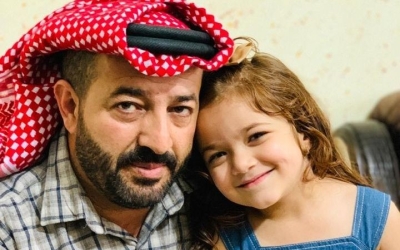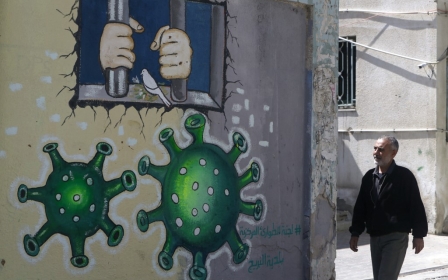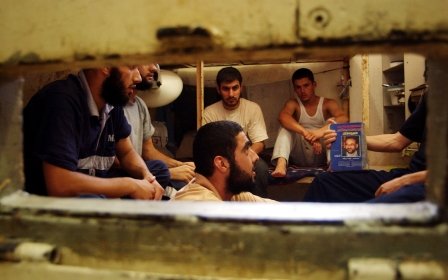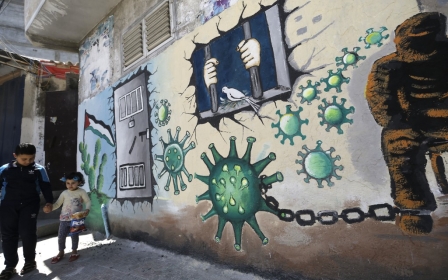Palestinian prisoner Maher al-Akhras passes 100 days on hunger strike
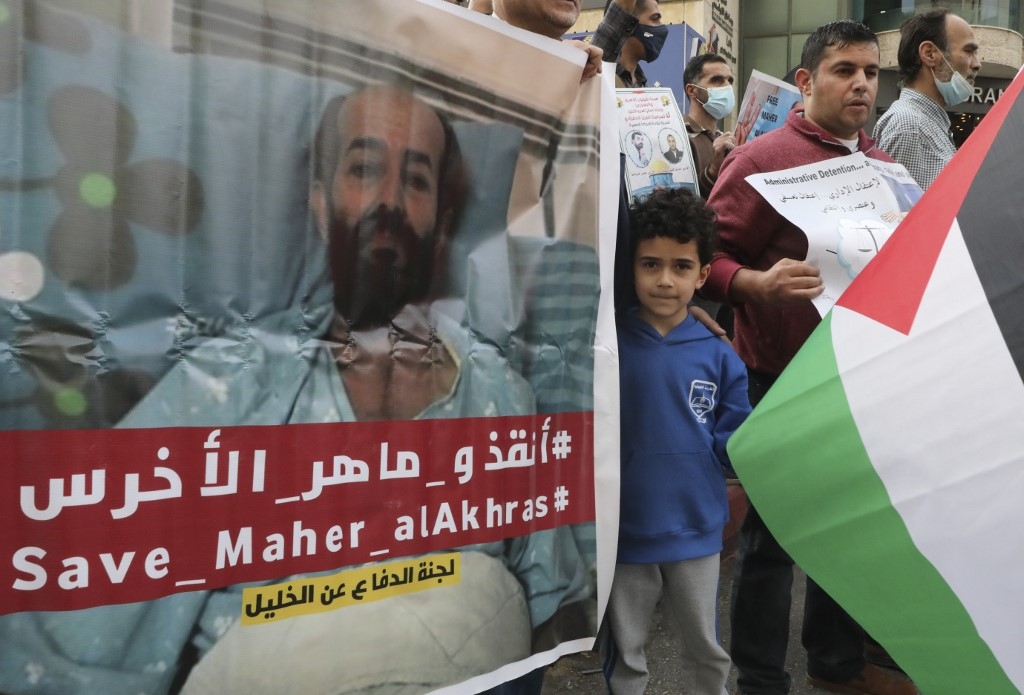
Palestinian prisoner Maher al-Akhras is on the “verge of death”, after passing 100 days on hunger strike in protest against his administrative detention by Israeli authorities.
The European External Action Service, the diplomatic service of the European Union (EU), warned last week that Akhras’s health is deteriorating.
“Regardless of the allegations against Mr al-Akhras, the European Union reiterates its long-standing concerns about the extensive use by Israel of administrative detention without formal charges,” it said in a statement.
Administrative detention is a highly controversial practice. Used almost exclusively against Palestinians, it allows for detention without charge or trial for renewable periods of three to six months, without the possibility of appeal or knowing what accusations are being levelled against the detained.
Taghreed, Akhras’s wife, told local media that her husband has occasionally entered a state of coma and is suffering convulsions and pain in the heart and eyes.
New MEE newsletter: Jerusalem Dispatch
Sign up to get the latest insights and analysis on Israel-Palestine, alongside Turkey Unpacked and other MEE newsletters
In October, Israel's Supreme Court rejected Akhras's legal petition for release. But on Monday, the court ruled that the prisoner's administrative detention should end after a four-month term, which runs until 26 November.
Taghreed said that her husband demands his immediate release despite the court decision.
Israeli rights groups B'tselem warned in a statement that Akhras is "on the verge of death".
"The responsibility for what happens next lies with those who can prevent his further deterioration and even death. They can still stop this from happening,” the Jerusalem-based organisation said.
Administrative detention was first implemented in Palestine under the British Mandate and has since been adopted by Israel.
Many Palestinian prisoners have resorted to going on hunger strike to protest against the practice.
According to Palestinian prisoners' rights group Addameer, 4,400 Palestinians were detained by Israel as of October, with 350 of them placed under administrative detention.
Akhras, 49, was arrested in July and was hospitalised in Kaplan Medical Centre in September, where he currently remains. He stopped accepting food or drink on the day of his arrest on 27 July.
Akhras is reportedly too weak to get out of his hospital bed and has been left without handcuffs and without an Israeli guard at his door.
Qadri Abu Bakr, head of the Palestine Liberation Organisation’s (PLO) Committee of Prisoners' and Former Prisoners' Authority, said that official letters have been sent to the foreign ministers of China and Russia, the Red Cross, the Arab League, and the Islamic Cooperation Organisation to "pressure Israel" to release Akhras.
Israel’s internal intelligence agency, Shin Bet, claims that Akhras is a member of the Islamic Jihad, an allegation his wife denies.
Born in 1971 in the village of Salileh, near the city of Jenin in the northern occupied West Bank, Akhras, a father of six, has been imprisoned by Israeli authorities at least five times since he was 18 for at least five years in total.
He was detained for seven months in 1989, for two years starting in 2004, 16 months starting in 2009, 11 months in 2018 and most recently in July.
Middle East Eye delivers independent and unrivalled coverage and analysis of the Middle East, North Africa and beyond. To learn more about republishing this content and the associated fees, please fill out this form. More about MEE can be found here.


